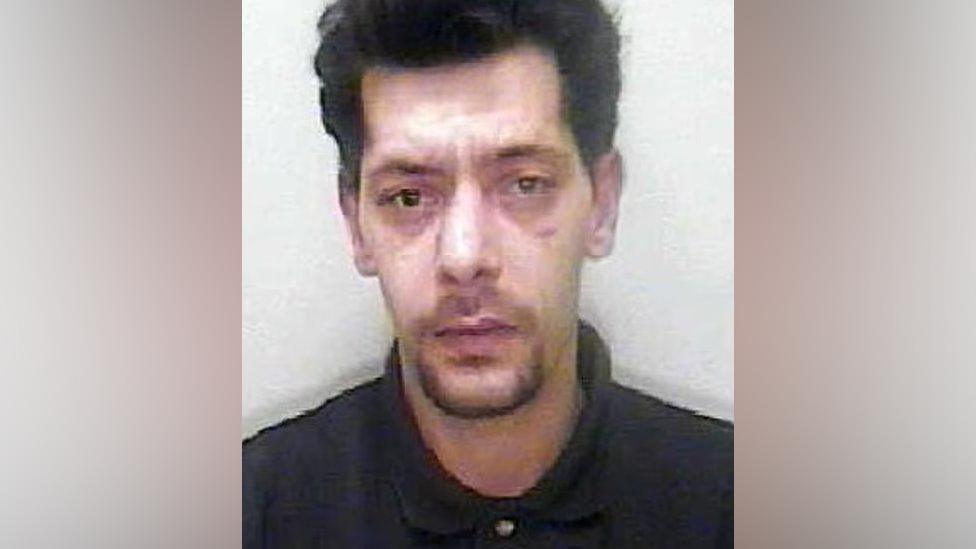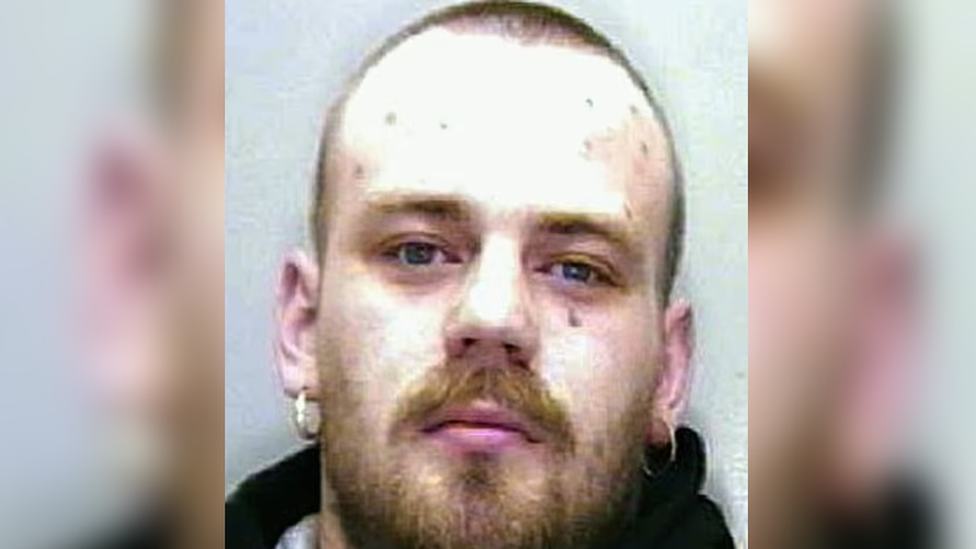Ellen Frith murder: Parole hearing for killer Dean Carr
- Published

A parole board will discuss whether Carr remains a risk to the public
A man convicted for his part in the notorious murder of a homeless woman in Nottingham could be freed from prison.
Dean Carr was jailed for killing Ellen Frith in 2006, alongside co-accused Mark Martin, who was also convicted of murdering Zoe Pennick, 26, and 18-year-old Katie Baxter.
Martin had said he wanted to become the city's first serial killer., external
Carr has served 17 years, but a parole board is to consider if he should be released from prison.
Ms Frith's badly burned body was discovered by fire crews in a flat in Marple Square, in the St Ann's area, on 24 January 2005.
Martin and Carr denied murdering her but were convicted after a five-week trial at Nottingham Crown Court, which heard Martin took the lead in the killing of the three women.

A judge said Martin had "positively enjoyed" murdering the victims
Martin strangled Ms Frith, 25, in a row over drug money, the trial heard, and was helped by Carr.
The trial also heard Martin strangled Ms Pennick and Ms Baxter between December 2004 and January 2005, and boasted of the killings to a fellow prisoner while he was held on remand.
They went missing within days of each other between Christmas and New Year 2004, and were found six days apart, partially buried in the same Nottingham warehouse.
The trial judge said Martin had "positively enjoyed" the "senseless, brutal and callous killings" and ordered he never be released from prison.
A third defendant, John Ashley, was convicted of murdering Ms Baxter, jailed for life and ordered to serve a minimum of 25 years for his role in the killings.
Carr, now 47, was also jailed for life and ordered to serve at least 14 years before being considered for release.

Ellen Frith was murdered by Dean Carr and Mark Martin
A Parole Board spokesman said a review had been scheduled for November to discuss whether Carr would be a risk to to the public if released.
The spokesman said: "An oral hearing has been listed for the parole review of Dean Carr and is scheduled to take place in November 2023.
"Parole Board decisions are solely focused on what risk a prisoner could represent to the public if released and whether that risk is manageable in the community.
"A panel will carefully examine a huge range of evidence, including details of the original crime, and any evidence of behaviour change, as well as explore the harm done and impact the crime has had on the victims.
"Members read and digest hundreds of pages of evidence and reports in the lead up to an oral hearing.
"Evidence from witnesses including probation officers, psychiatrists and psychologists, officials supervising the offender in prison, as well as victim personal statements, are then given at the hearing.
"The prisoner and witnesses are then questioned at length during the hearing which often lasts a full day or more.
"Parole reviews are undertaken thoroughly and with extreme care. Protecting the public is our number one priority."

Follow BBC East Midlands on Facebook, external, Twitter, external, or Instagram, external. Send your story ideas to eastmidsnews@bbc.co.uk, external.